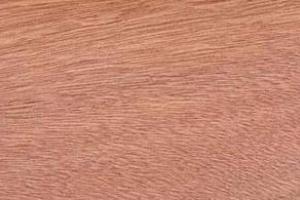Risk Tool
Okoume Aucoumea klaineana
Also know as: Gaboon mahogany

A. klaineana, or okoume, is a large timber-producing tree native to the west coast of equatorial Africa. It can grow up to 60 m tall, and often has buttresses near the base of the tree that can grow up to 3 m. Its timber is considered one of the best for the manufacturing of plywood, particularly for marine uses, and okoume is a very popular timber for plywood kayaks. In Gabon and Equatorial Guinea, okoume is one of the most important timber species, accounting for more than 60 percent of timber production. Most of this is exported in log form to Asia and Europe.
The wood is pink in color. It is used in light interior construction, carpentry, furniture, sports equipment, cigar boxes and packing cases. Logs are traditionally used to make canoes in the tree’s natural range. Okoume is also important for its non-timber uses in Africa - its resin is used cosmetically (small amounts of the timber are also exported to France for this purpose), and its bark is used to treat gastrointestinal problems. Its IUCN Red List status is “vulnerable.” A number of countries have experimented with plantations of A. klaineana.
Species Details
Aucoumea klaineana is not CITES listed and at time of research, is not subject to international or national trade bans or restrictions.
China and France are the major buyers of okoume timber.